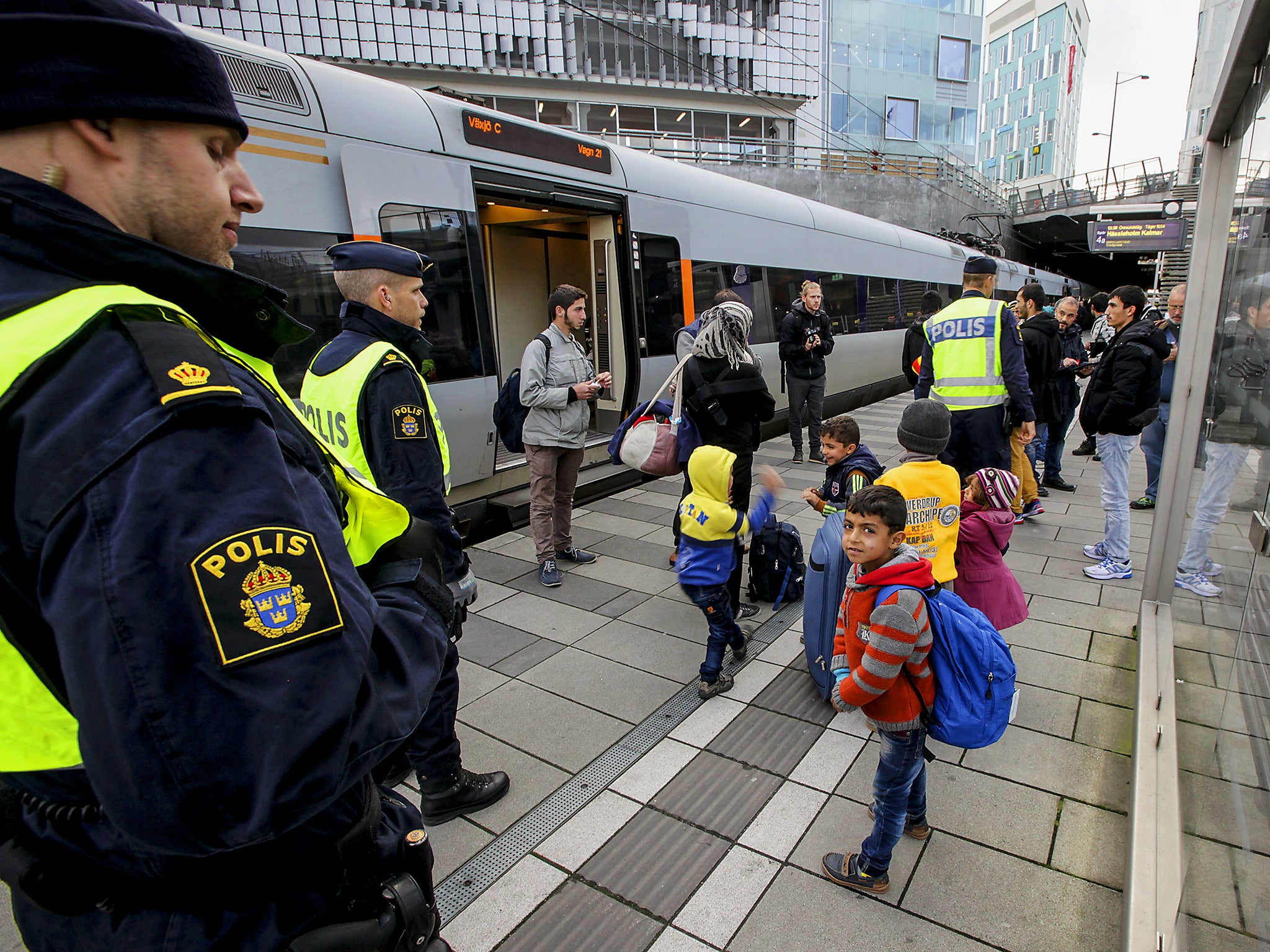Refugee children in Sweden are falling into coma-like states on learning their families will be deported
Resignation syndrome, or uppgivenhetssyndrom, has been diagnosed in 60 children this year

Your support helps us to tell the story
From reproductive rights to climate change to Big Tech, The Independent is on the ground when the story is developing. Whether it's investigating the financials of Elon Musk's pro-Trump PAC or producing our latest documentary, 'The A Word', which shines a light on the American women fighting for reproductive rights, we know how important it is to parse out the facts from the messaging.
At such a critical moment in US history, we need reporters on the ground. Your donation allows us to keep sending journalists to speak to both sides of the story.
The Independent is trusted by Americans across the entire political spectrum. And unlike many other quality news outlets, we choose not to lock Americans out of our reporting and analysis with paywalls. We believe quality journalism should be available to everyone, paid for by those who can afford it.
Your support makes all the difference.Authorities in Sweden are attempting to solve a problem that appears unique to its child refugees - uppgivenhetssyndrom or "resignation syndrome".
The condition causes healthy youngsters to deteriorate into a comatose-like state after learning of their impending deportation,
It is believed to only exist among the refugee population in the Scandinavian country, where it has been prevalent since the early part of this century.
In 2016, 60 children were diagnosed with the syndrome, which sees patients rendered “totally passive, immobile, lacks tonus, withdrawn, mute, unable to eat and drink, incontinent and not reacting to physical stimuli or pain,” according to medical journal Acta Pædiatrica.
The children are left bedridden or have to be moved in wheelchairs and feeding must be done through a tube.
Tests which gained a response from people in comas did not work on the afflicted children, but other exercises showed they suffered no brain damage.
It was described by some doctors as “willed dying” and often occurred after families were denied asylum status and thrown into uncertainty.
A similar phenomenon was observed in Nazi concentration camps, the New Yorker reported, in prisoners who had effectively lost all hope and given up.
Doctors saw the condition as the manifestation of fear of being returned to their old countries, where they could be unsafe, and of adjusting to a new society after having become used to Sweden.
Many of those afflicted with uppgivenhetssyndrom are not victims of the current crisis, but from former Soviet states. Many are from minority groups, such as Roma gypsies.
Among those to suffer from the syndrome is a young boy called Georgi, was from North Ossetia, Russia.
He told the New Yorker magazine that during his months in bed he had felt as if he were in a glass box with fragile walls, deep in the ocean.
Moving or speaking would cause the glass to shatter and the "water would pour in and kill me,” he said.
The main ‘cure’ for the condition is for refugee families to be awarded residency permits – something even recognised by the Swedish Board of Health and Welfare.
Improvements in the children’s condition usually occur several months after a family has been granted leave to remain.
But this does not guarantee families of children with uppgivenhetssyndrom will be allowed to stay, particularly since Sweden has tightened rules on refugees in recent years.
There have been reports of deported children still in comatose-like states months after they have been returned to their family’s country of origin.
The idea that the condition can be treated by awarding families a residency permit has also been questioned, as critics say it prevents a proper medical approach.
Join our commenting forum
Join thought-provoking conversations, follow other Independent readers and see their replies
Comments